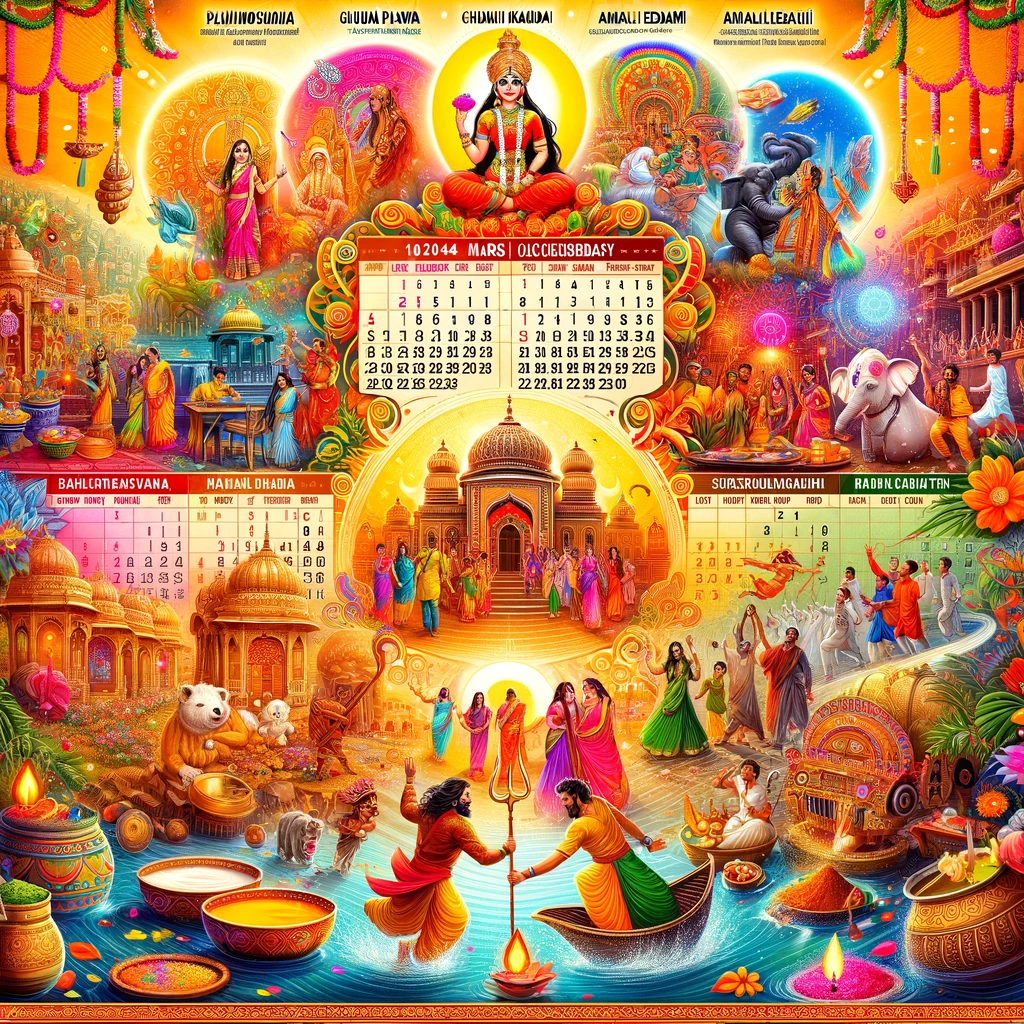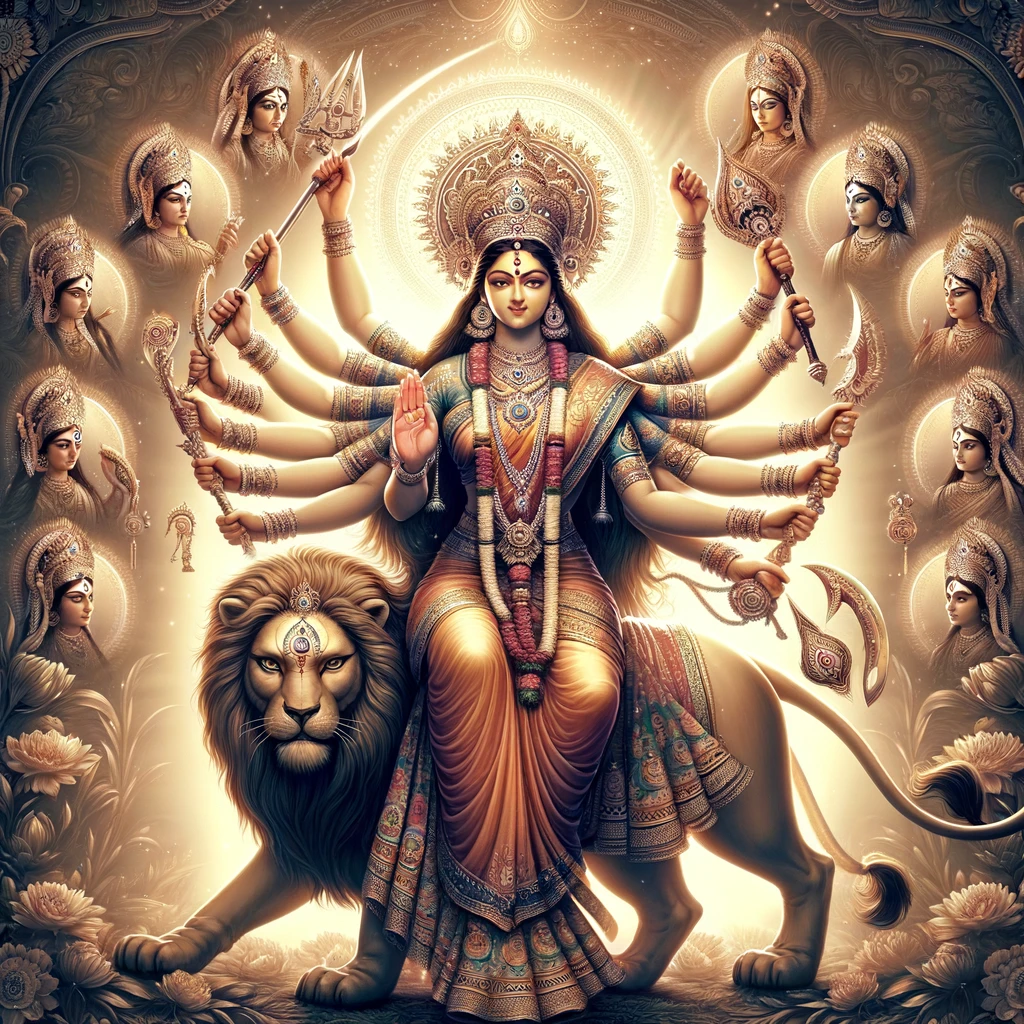
The Hindu calendar is a rich and intricate system of timekeeping that is deeply rooted in India’s spiritual and cultural traditions. For the month of October 2024, the Hindu calendar outlines significant festivals, auspicious days, and important planetary alignments. Each day holds spiritual importance, and many of the rituals performed during this month follow a lunar cycle, which governs the observance of various religious activities.
Structure of the Hindu Calendar
The Hindu calendar, also known as the Panchang, is primarily based on the movement of the Moon (lunar cycle). Each month is divided into two halves:
- Shukla Paksha (the waxing phase of the moon) and
- Krishna Paksha (the waning phase of the moon).
In the month of October 2024, these phases will play a key role in determining festivals, fasts, and other religious observances.
Important Dates in October 2024
Navratri (1st – 9th October)
The month of October begins with the grand celebration of Navratri, one of the most revered festivals in Hinduism, dedicated to the worship of Goddess Durga. Navratri lasts for nine nights, during which each day is devoted to a different form of Durga. The festival concludes with Vijayadashami or Dussehra, which falls on 10th October 2024.
Each day of Navratri has a significant form of the Goddess that devotees worship:
- 1st October: Maa Kushmanda (the Goddess who brings prosperity and health)
- 2nd October: Maa Skandamata (mother of Kartikeya, symbolizes strength and power)
- 3rd October: Maa Katyayani (Goddess who destroys evil)
- 4th October: Maa Kalaratri (Goddess of death and time, who removes fear)
- 5th October: Maa Mahagauri (symbol of purity and virtue)
- 6th October: Maa Siddhidatri (goddess who grants spiritual powers)
Each of these days carries spiritual significance for devotees, who offer prayers, observe fasts, and perform rituals in honor of the Goddess.
Dussehra (10th October 2024)
Marking the victory of good over evil, Dussehra celebrates Lord Rama’s victory over the demon king Ravana. The day symbolizes the triumph of truth, courage, and righteousness. This festival is celebrated with grandeur, including Ramlila performances, effigy burning of Ravana, and community gatherings.
Sharad Purnima (17th October 2024)
The Sharad Purnima is one of the most auspicious full moons in the Hindu calendar. It is believed that the rays of the moon have special healing properties on this day. People in many parts of India worship Lord Krishna and celebrate the Raas Leela, recalling the divine dance performed by Krishna and the Gopis. Devotees prepare a special dish called Kheer and leave it under the moonlight to be blessed with divine energy.
Karwa Chauth (20th October 2024)
This festival is particularly important for married women who fast from sunrise to moonrise, praying for the well-being and longevity of their husbands. It holds a significant place in North Indian traditions, especially among Hindu married women. The fast is broken once the moon is sighted, after which women offer prayers to the moon and their husbands.
Ahoi Ashtami (25th October 2024)
Ahoi Ashtami is another fasting day, observed by mothers for the long life and prosperity of their children. It occurs on the eighth day of the Krishna Paksha in the month of Kartika. Traditionally, women break their fast after sighting the stars or the moon.
Rama Ekadashi (28th October 2024)
Ekadashi is the eleventh day of both waxing and waning phases of the moon, and it is considered a highly auspicious day in Hinduism. On this day, fasting and prayer to Lord Vishnu bring prosperity and help in overcoming sins from previous lives. Rama Ekadashi holds special significance in the Kartika month, as it is believed that observing this fast leads to the liberation of the soul and blessings from Lord Vishnu.
Lunar and Solar Alignments in October 2024
Lunar Phases
- Amavasya (9th October): The no-moon day or Amavasya marks the end of the dark fortnight and is considered a time for honoring ancestors through Pitru Tarpan rituals.
- Purnima (17th October): The full moon or Sharad Purnima is one of the most auspicious full moons in the Hindu calendar. Many people observe fasts and engage in devotional activities.
Solar Transits
- Surya Sankranti: The Sun’s transit from one zodiac sign to another is an important astrological event. Tula Sankranti, marking the entry of the Sun into Libra, occurs in mid-October. This transit has a significant influence on health, wealth, and prosperity.
Religious and Cultural Significance of the Hindu Calendar
The Hindu calendar is much more than a time-keeping device; it is a spiritual guide that helps Hindus plan their religious observances, fasts, and festivals. It ties together the cosmic elements of time, planetary motion, and spiritual practices. Each day, governed by the positions of the moon and stars, has a unique vibration, and performing rituals or prayers on these days enhances their spiritual efficacy.
The festivals in October 2024, especially Navratri, Dussehra, and Sharad Purnima, are deeply connected to the worship of the divine feminine, Lord Vishnu, and Lord Krishna. Observing fasts, offering prayers, and performing rituals not only bring blessings but also provide a means to connect with the divine forces that govern the universe.





